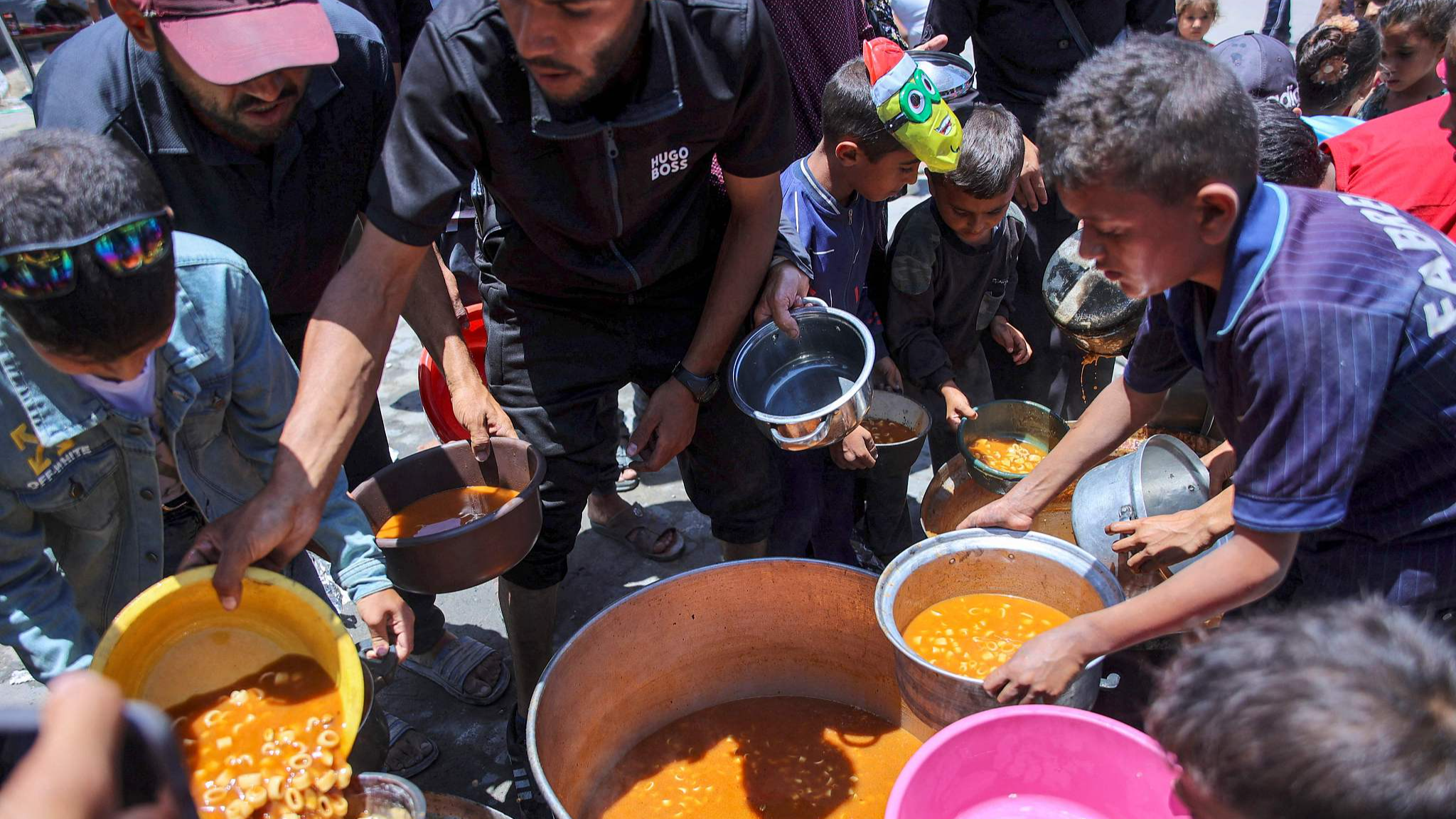U.S. Secretary of State Antony Blinken on Monday urged Israeli Defense Minister Yoav Gallant to swiftly devise a strong post-war strategy for Gaza and to ensure that tensions with Hezbollah on Israel’s northern border do not escalate further.
A State Department statement following the meeting noted that Blinken briefed Gallant on ongoing diplomatic efforts to advance security, governance and reconstruction in Gaza post-conflict, emphasizing the critical importance of these efforts for Israel’s security.
“He also underscored the importance of avoiding further escalation of the conflict and reaching a diplomatic resolution that allows both Israeli and Lebanese families to return to their homes,” the State Department added.
The viability of a U.S.-backed proposal to wind down the 8-month-long conflict in Gaza has been cast into doubt after Israeli Prime Minister Benjamin Netanyahu said he would only be willing to agree to a “partial” ceasefire deal that would not end the war, comments that sparked an uproar from families of hostages held by Hamas.
Netanyahu’s comments stood in sharp contrast to the outlines of the deal detailed late last month by U.S. President Joe Biden, who framed the plan as an Israeli one and which some in Israel refer to as “Netanyahu’s deal.” His remarks could further strain Israel’s ties to the U.S., its top ally, which launched a major diplomatic push for the latest ceasefire proposal, the AP reported.
Hamas has insisted it will not release the remaining hostages unless there’s a permanent ceasefire and a full withdrawal of Israeli forces from Gaza. When Biden announced the latest proposal, he said it included both.
But Netanyahu says Israel is still committed to destroying Hamas’ military and governing capabilities, and ensuring it can never again carry out an October 7-style assault. A full withdrawal of Israeli forces from Gaza, where Hamas’ top leadership and much of its forces are still intact, would almost certainly leave the group in control of the territory and able to rearm.
In the interview, Netanyahu said the current phase of fighting is ending, setting the stage for Israel to send more troops to its northern border to confront the Lebanese militant group Hezbollah, in what could open up a new war front. But he said that didn’t mean the war in Gaza was over.
Casualties rises continuously
At least seven Palestinians were killed and 22 others wounded in an Israeli air strike in Bani Suhaila town in the east of Khan Younis city in southern Gaza, the Hamas-run health authorities said on Monday.
In a press statement sent to Xinhua, the authorities said the casualties were transferred to the European Hospital in Khan Younis.
Palestinian security sources told Xinhua that Israeli warplanes attacked a group of people, mostly “volunteers with Hamas,” who were securing the trucks loaded with humanitarian aid.
There was no immediate comment about the incident from the Israeli army.
On Monday, the health authorities said about 28 Palestinians were killed and 66 others injured by Israeli strikes in various areas of Gaza over the previous 24 hours.
Inability to access aid
Meanwhile, access and security constraints continue to hinder food aid delivery to hundreds of thousands of people in Gaza and the medical evacuation of 10,000 patients, the UN Office for the Coordination of Humanitarian Affairs (OCHA) said on Monday.
The OCHA said the inability to transport aid commodities from the Kerem Shalom crossing safely and the continued closure of the Rafah crossing compounded the challenges facing aid operations.
The UN body said fewer than half of the 86 coordinated humanitarian missions to northern Gaza planned for this month were facilitated by Israeli authorities. More than a quarter were impeded, 12 percent were denied access and 12 percent were canceled due to logistical, operational or security reasons.
“A humanitarian mission returning to southern Gaza after delivering fuel and medical supplies to Gaza City in the north was delayed for more than 13 hours at an Israeli military checkpoint, putting the convoy in danger of being caught in crossfire,” the office cited as just one example of the challenges in aid delivery. “Planned humanitarian missions requiring coordination to areas in southern Gaza also continue to face impediments and access denials.”
The World Health Organization (WHO) reported that more than 10,000 people need medical evacuations to outside Gaza. WHO Director-General Dr Tedros Adhanom Ghebreyesus appealed for their sustained medical evacuation and timely passage using all possible routes.
The reconnected U.S.-built pier off the coast of the Gaza Strip cannot supply Palestinians with anywhere near the level of aid they need, the head of the WHO’s Eastern Mediterranean region said on Monday.
Dr Hanan Balkhy made the remarks after the U.S. military began delivering aid through the floating pier again, after it was suspended for a second time because of rough seas.
“The pier has supported a little bit, but it’s not to the scale that is needed by any stretch of the imagination,” Balkhy told the AP in an interview. “So we need to emphasize on the land routes to ensure the amount and the quantity and the efficiency.”
The organization says that since Israel launched its ground operation into Rafah, aid delivery has declined by 67 percent, with over 50 WHO trucks stuck on the Egyptian side of the crossing into the southern city. Meanwhile, just three trucks were allowed into Gaza through the Kerem Shalom crossing.
Source(s): CGTN

 News6 days ago
News6 days ago
 Sports6 days ago
Sports6 days ago
 Sports7 days ago
Sports7 days ago
 News6 days ago
News6 days ago
 World7 days ago
World7 days ago
 News5 days ago
News5 days ago
 Business5 days ago
Business5 days ago
 News5 days ago
News5 days ago


















